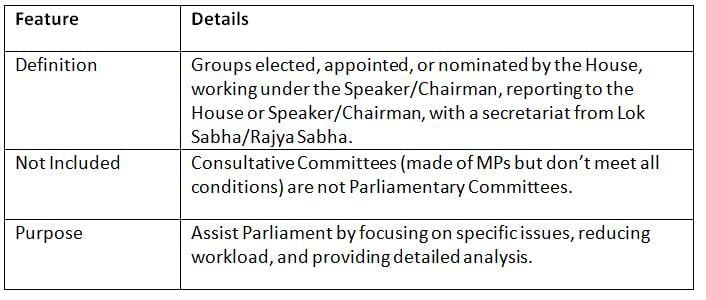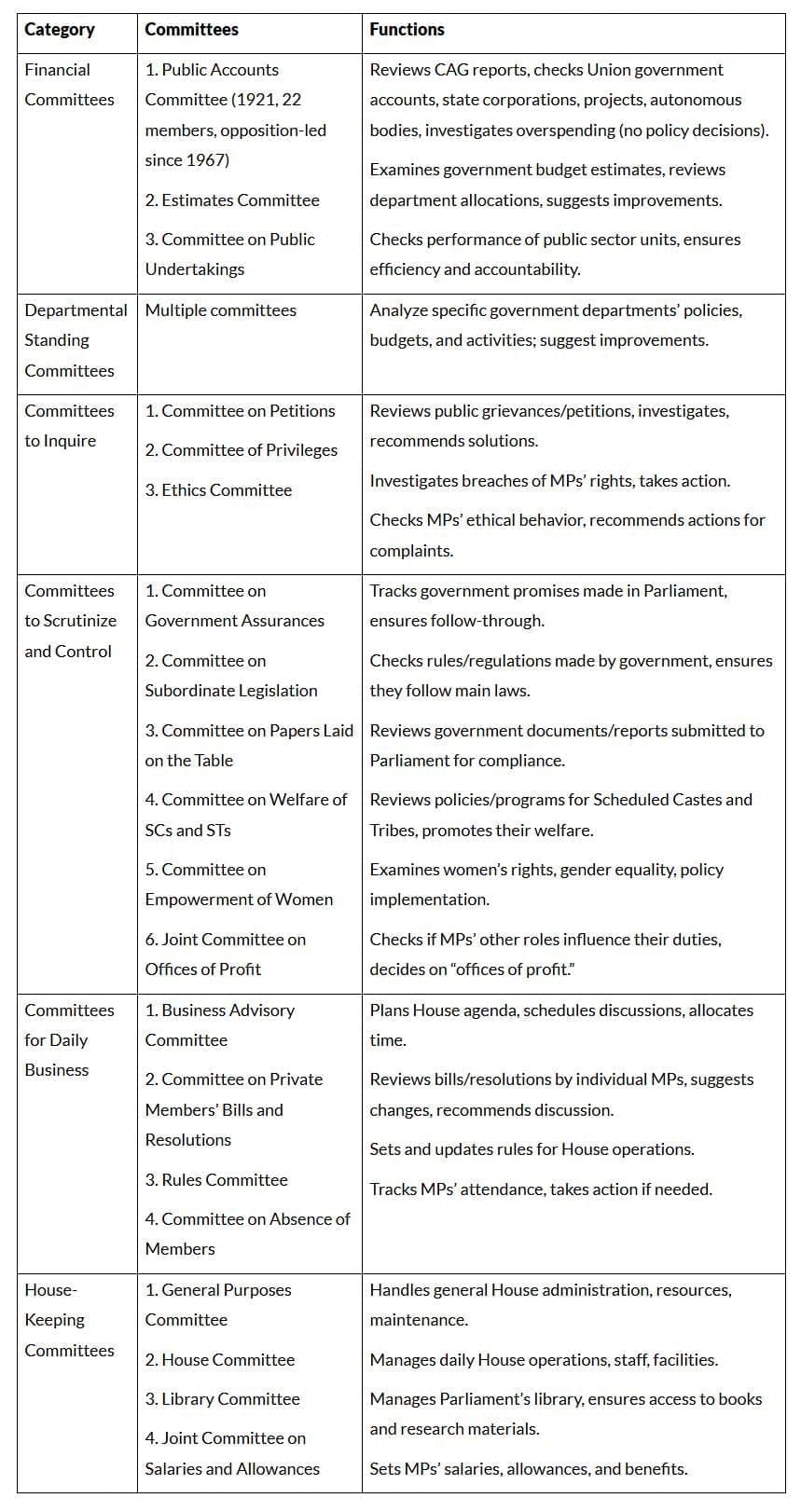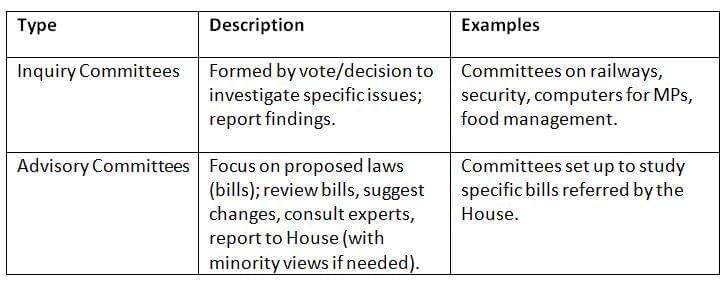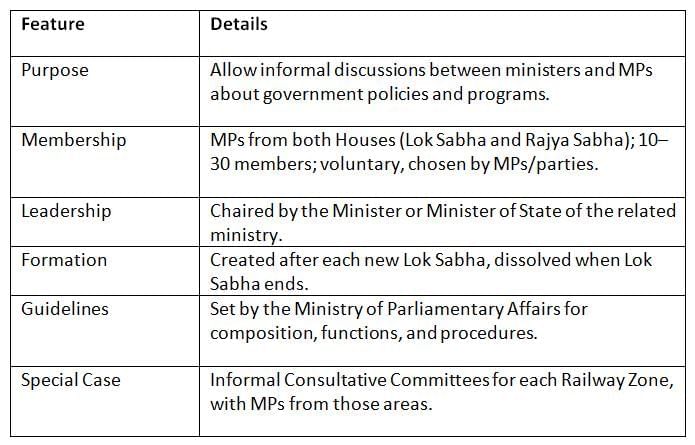Cheat Sheet: Parliamentary Committees and Forums | Indian Polity for UPSC CSE PDF Download
| Table of contents |

|
| Introduction |

|
| What Are Parliamentary Committees? |

|
| Types of Parliamentary Committees |

|
| Standing Committees |

|
| Ad Hoc Committees |

|
| Consultative Committees |

|
| Timeline of Key Events |

|
Introduction
This chapter explains Parliamentary Committees, which help India’s Parliament manage its complex work. These committees focus on specific tasks, making it easier for Parliament to discuss and decide on important issues. The Constitution mentions them briefly, but the rules of the Lok Sabha and Rajya Sabha explain how they work. The chapter uses simple tables to make their roles and types clear for easy understanding.
What Are Parliamentary Committees?
Parliamentary Committees are small groups of MPs chosen to handle specific tasks, helping Parliament work more efficiently. They report to the House or its leaders and have support from Parliament’s staff.

Key Points:
- Committees make Parliament’s big job easier by focusing on smaller tasks.
- They follow rules set by the Lok Sabha or Rajya Sabha, not the Constitution directly.
Types of Parliamentary Committees
Parliamentary Committees are divided into two main types based on how long they exist and their purpose.
Key Points:
- Standing Committees are ongoing and handle regular tasks.
- Ad Hoc Committees are short-term, created for special issues.
Standing Committees
Standing Committees are grouped into six categories based on their roles, from checking government spending to managing daily House tasks.
Key Points:
- Financial Committees ensure money is spent properly.
- Departmental Committees watch over government departments.
- Other committees handle grievances, ethics, rules, and House operations.
Ad Hoc Committees
Ad Hoc Committees are temporary groups created for specific tasks, like investigating issues or reviewing bills.
Key Points:
- Inquiry Committees check specific problems, like railway finances or Parliament security.
- Advisory Committees help improve bills before they become laws.
Consultative Committees
Consultative Committees are groups of MPs linked to ministries, but they aren’t true Parliamentary Committees because they don’t follow all the same rules.
Key Points:
- Consultative Committees help MPs and ministers talk about government work.
- They’re temporary, tied to the Lok Sabha’s term, and less formal than Parliamentary Committees.
Timeline of Key Events

Conclusion
This chapter shows how Parliamentary Committees help India’s Parliament handle its big and complex work. From checking government spending to reviewing laws and managing daily tasks, these committees make Parliament more effective. Understanding their roles and types is key to seeing how Parliament keeps the government accountable and organized.
|
154 videos|998 docs|260 tests
|
FAQs on Cheat Sheet: Parliamentary Committees and Forums - Indian Polity for UPSC CSE
| 1. What are Parliamentary Committees and their significance in governance? |  |
| 2. What are the different types of Parliamentary Committees? |  |
| 3. What is the role of Standing Committees in Parliament? |  |
| 4. How do Ad Hoc Committees differ from Standing Committees? |  |
| 5. What is the function of Consultative Committees within Parliament? |  |















